Mattering Press
This page shows the latest publications (in descending order of publication date) from Mattering Press.
Metadata is licensed as Creative Commons Zero (CC0) and is retrieved from Thoth’s open APIs.
Last updated: 2025-11-18 01:00:19
September 2025
Technoscientific Globalisation from Below

Editor: Mathieu Quet
Editor: Koichi Kameda
Editor: Jessica Pourraz
Editor: Yves-Marie Rault-Chodankar
Manchester, UK: Mattering Press, 2025
November 2023
The Ethnographic Case
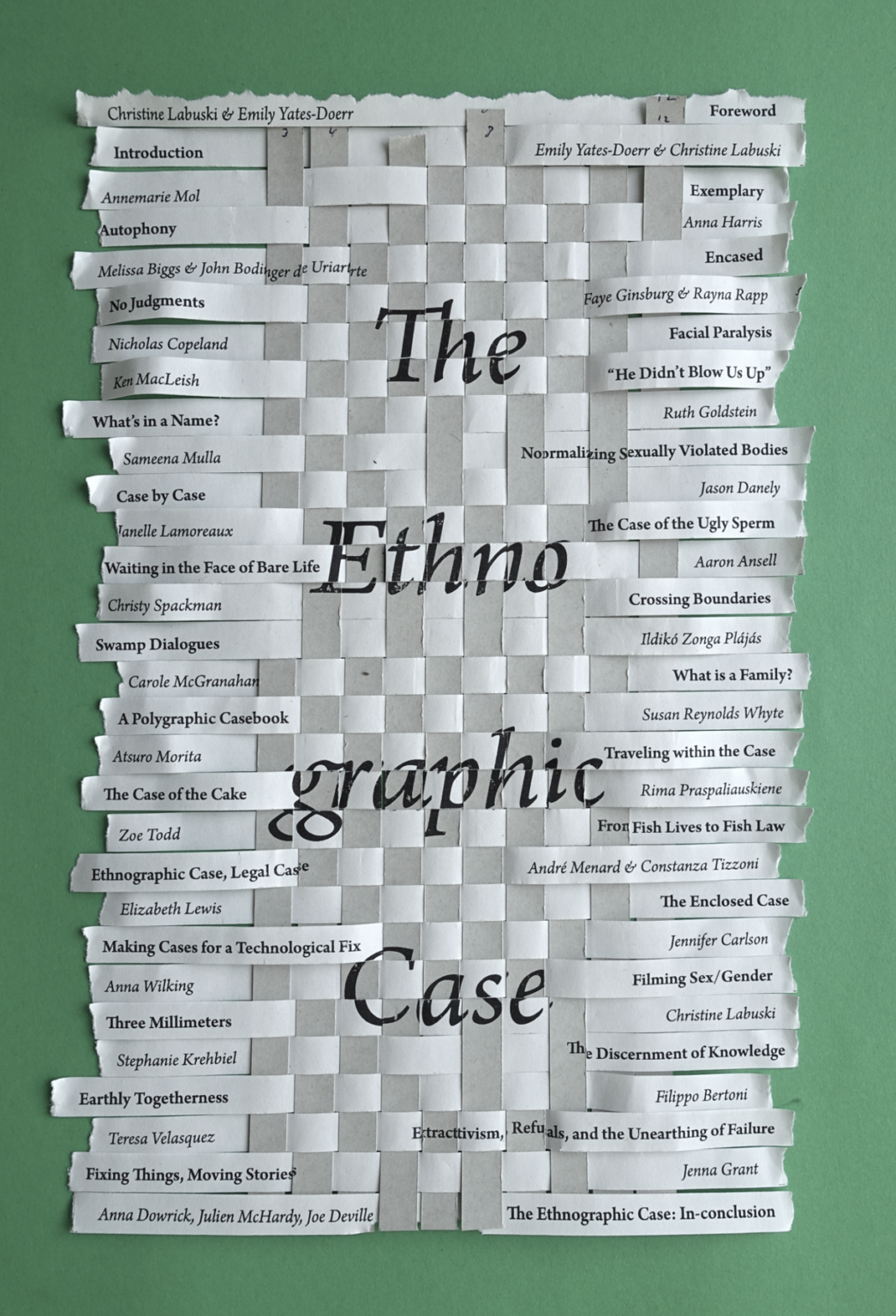
Editor: Emily Yates-Doerr
Editor: Christine Labuski
Manchester: Mattering Press, 2023
https://doi.org/10.28938/9781912729340
In 26 gripping and provocative installations, the new and updated volume showcases research from influential feminist and decolonial scholars. Where anthropology has long sought to identify patterns in culture, this volume makes space for inquiry focused on particularities and advocates for an intellectual politics where that which seemingly doesn’t fit is still allowed to matter.
May 2022
Democratic Situations
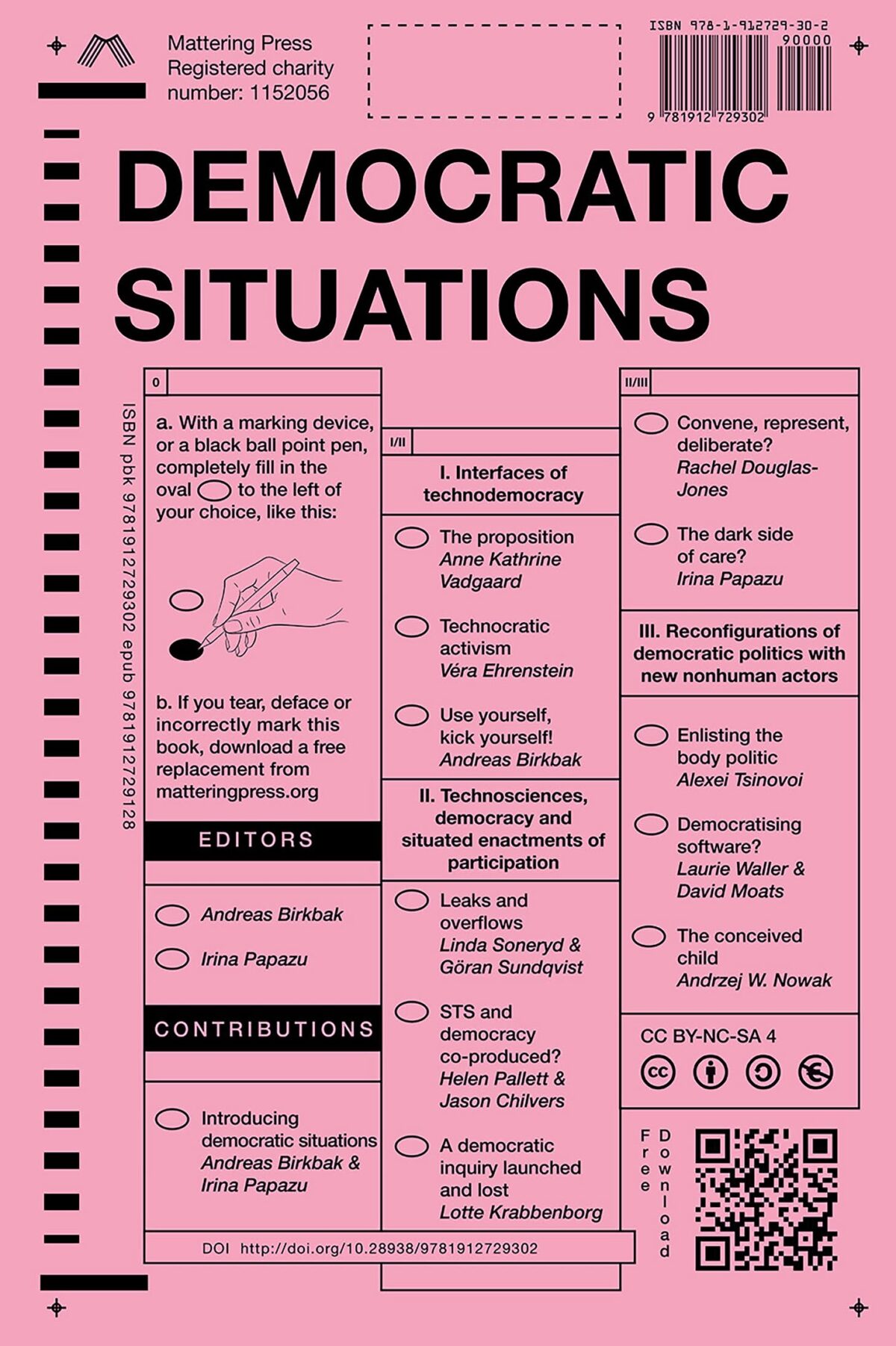
Editor: Andreas Birkbak
Editor: Irina Papazu
Manchester, UK: Mattering Press, 2022
https://doi.org/10.28938/9781912729302
Democratic Situations places the making and doing of democratic politics at the centre of relational research. The book turns the well-known sites of contemporary Euro-American democracy – elections, bureaucracies, public debates and citizen participation – into fluctuating democratic situations where supposedly untouchable democratic ideals are contested and warped in practice. The empirical cases demonstrate that democracy cannot be reduced to theoretical schemes of conflict, institutions or deliberation. Instead, they offer an urgently needed renewal of our understanding of democratic politics at a time when conventional ideas increasingly fail to capture current events such as Brexit, Trump and Covid19.
April 2022
Concealing for Freedom: The Making of Encryption, Secure Messaging and Digital Liberties

Author: Ksenia Ermoshina
Author: Francesca Musiani
Foreword by: Laura DeNardis
Manchester, UK: Mattering Press, 2022
https://doi.org/10.28938/9781912729227
Concealing for Freedom: The Making of Encryption, Secure Messaging and Digital Liberties sets out to explore one of the core battlegrounds of Internet governance: the encryption of online communications. Current debates around encryption have fundamental implications for our individual liberties and collective presence on the Internet. Encryption of communications at scale and in increasingly usable ways has become a matter of public concern, especially since Edward Snowden’s 2013 revelations. A new cryptographic imaginary is taking hold, which sees encryption as a necessary precondition for the formation of networked publics. At the same time, there have been major evolutions and accelerations in the field of secure communications, prompted in part by the cryptography community’s renewed efforts to create next-generation secure messaging protocols and applications. The book explores developers’ actions and their interactions with other stakeholders, for instance users, security trainers, standardising bodies, and funding organizations. It also examines their interactions with the technical artifacts they develop, in which a core common objective is to create tools that “conceal for freedom” even as how this objective is met differs according to technical architectures, the user publics being targeted and the tools’ underlying values and business models.
November 2021
Engineering the Climate: Science, Politics and Visions of Control
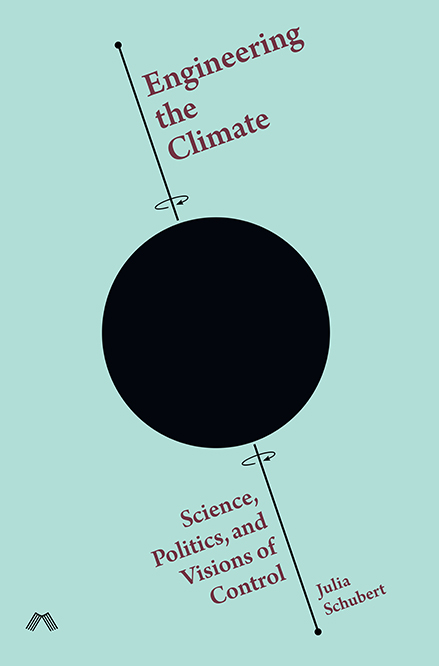
Author: Julia Schubert
Manchester, UK: Mattering Press, 2021
https://doi.org/10.28938/9781912729265
Notions of the impending climate crisis have pushed a set of highly contested techno-scientific measures onto policy agendas around the world. Suggestions to deliberately alter, to engineer, the Earth’s climate have gained political currency in recent years not as a positive vision of techno-scientific innovation, but as a daunting measure of last resort. The controversial status of various so-called climate engineering proposals raises a simple, yet pressing question: How has it has come to this? And, more specifically, how did such contested measures earn their place on policy agendas, despite enormous scientific complexities and fierce political contestation?
October 2021
With Microbes

Author: Matthäus Rest
Editor: Charlotte Brives
Editor: Salla Sariola
Manchester, UK: Mattering Press, 2021
https://doi.org/10.28938/9781912729180
Without microbes, no other forms of life would be possible. But what does it mean to be with microbes? With Microbes sets microbes and the multiple ways they exist around, in and on humans at center stage. In this book, 24 social scientists and artists attune to microbes and describe their complicated relationships with humans and other beings. The book shows the multiplicity of these relationships and their dynamism, through detailed ethnographies of the relationships between humans, animals, plants, and microbes. Ethnographic explorations with fermented foods, waste, faecal matter, immunity, antimicrobial resistance, phages, as well as indigenous and scientific understandings of microbes challenge ideas of them being simple entities: not just pathogenic foes, old friends or good fermentation minions, but so much more. By describing these complex, dynamic, and ever-changing entanglements between humans and microbes, the chapters raise crucial points about how microbes are ‘known’ and how social scientists can study microbes with ethnographic methods, more often than not in the absence of microscopes, models, and computations. Following these various entanglements, the book tells how these relations transform both humans and microbes in the process.
Environmental Alterities
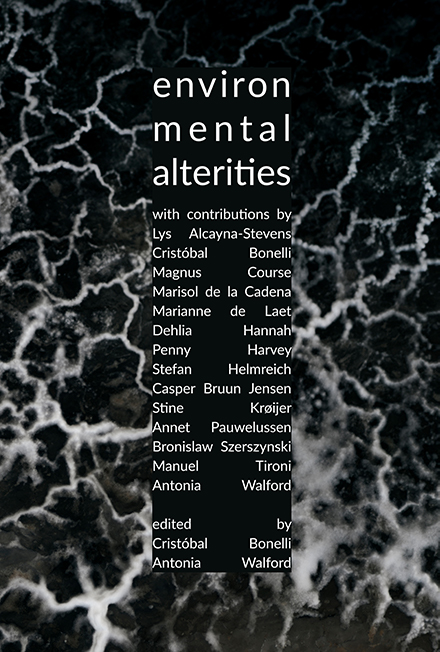
Editor: Antonia Walford
Editor: Cristóbal Bonelli
Manchester, UK: Mattering Press, 2021
https://doi.org/10.28938/9781912729142
In the context of accelerating environmental crises and exhausted intellectual paradigms, this book asks what comes after ‘after nature’. Instead of demanding new models and approaches, it invites its readers to look to the endpoints and failures of what is already known, in order to generate alternative forms of ethical engagement with worlds both on this planet, and beyond it. Drawing together scholarship from across science and technology studies, philosophy, and anthropology and bringing it into conversation with rich ethnographic and empirical material, the book asks how we might potentialise the contradictions and oppositions of critical social scientific thinking in order to develop a mode of paradoxical engagement that is in constant movement between knowledge and its edges, practices and their limits, and which allows us to relate to that which is excessive to relations and relationality.
August 2021
Sensing In/Security: Sensors as Transnational Security Infrastructures

Editor: Nina Klimburg-Witjes
Editor: Nikolaus Poechhacker
Editor: Geoffrey C. Bowker
Foreword by: Lucy Suchman
Manchester, UK: Mattering Press, 2021
https://doi.org/10.28938/9781912729111
Sensing In/Security: Sensors as Transnational Security Infrastructures investigates how sensors and sensing practices enact regimes of security and insecurity. It extends long-standing concerns with infrastructuring to emergent modes of surveillance and control by exploring how digitally networked sensors shape securitisation practices. Contributions in this volume examine how sensing devices gain political and epistemic relevance in various forms of in/security, from border control, regulation, and epidemiological tracking, to aerial surveillance and hacking. Instead of focusing on specific sensory devices and their consequences, this volume explores the complex and sometimes invisible political, cultural and ethical processes of infrastructuring in/security.
May 2021
Energy Worlds in Experiment

Editor: Laura Watts
Editor: James Maguire
Editor: Brit Ross Winthereik
Manchester, UK: Mattering Press, 2021
https://doi.org/10.28938/9781912729098
Energy Worlds in Experiment is an experiment in writing about energy and an exploration of energy infrastructures as experiments. Twenty authors have written collaborative chapters that examine energy politics and practices, from electricity cables and energy monitors to swamps and estuaries.
August 2020
Boxes: A Field Guide
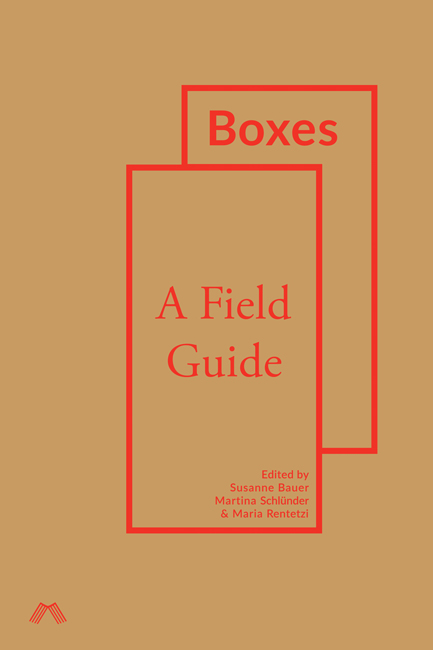
Editor: Susanne Bauer
Editor: Maria Rentetzi
Editor: Martina Schlünder
Manchester, UK: Mattering Press, 2020
https://doi.org/10.28938/9781912729012
A book full of boxes. A box in itself. An unboxing. This book explores boxes in their broadest sense and size. It invites us to step into the field, unravel how and why things are contained and how it might be otherwise. By turning the focus of Science and Technology Studies (STS) to boxing practices, this collation of essays examines boxes as world-making devices.
September 2018
Energy Babble

Author: Bill Gaver
Author: Mike Michael
Author: Liliana Ovalle
Author: Tobie Kerridge
Author: Matthew Plummer-Fernandez
Author: Alex Wilkie
Author: Andy Boucher
Author: Katherine Moline
Manchester, UK: Mattering Press, 2018
https://doi.org/10.28938/9780995527720
This is the story of a set of computational devices called Energy Babbles. The product of a collaboration between designers and STS researchers, Energy Babbles are like automated talk radios obsessed with energy. Synthesised voices, punctuated by occasional jingles, recount energy policy announcements, remarks about energy conservation made on social media, information about current energy demand and production, and comments entered by other Babble users.
Developed for members of UK community groups working to promote sustainable energy practices, the Energy Babbles were designed to reflect the complex situations they navigate, to provide information and encourage communication, and to help shed light on their engagements with energy policy and practice. This book tells the story of the Babbles from a mix of design and STS perspectives, suggesting how design may benefit from the perspectives of STS, and how STS may take an interventionist, design-led approach to the study of emerging technological issues.
July 2018
Ghost-Managed Medicine: Big Pharma’s Invisible Hands

Author: Sergio Sismondo
Manchester, UK: Mattering Press, 2018
https://doi.org/10.28938/9780995527775
Ghost-Managed Medicine by Sergio Sismondo explores a spectral side of medical knowledge, based in pharmaceutical industry tactics and practices.
An Anthropology of Common Ground: Awkward Encounters in Heritage Work

Author: Nathalia Brichet
Manchester: Mattering Press, 2018
https://doi.org/10.28938/9780995527799
Paying attention to details and ‘small stories’ as that which make worlds (heritage projects as well as ethnography), the book proposes a kind of postcolonial scholarship. Rather than uncovering or building up one story about the Danish-Ghanaian past, the work insists on providing ‘inconclusive’ analyses, collaboratively generated in the course of the project work and in the process of writing ethnographically about it. The ambition is to nurture fieldwork as an opportunity for creating a common ground, on which to think about what heritage and ethnography could be. Common ground, then, is not only an ideal of the joint heritage project, but an expression of an anthropological ambition. In consequence, the book is an account of a particular ethnographic research project – the ‘methods story’ being about how post-colonial relations might be noticed and supported and about how empirical research is done as relations between what is going on in the field and the way that the ethnographer chooses to tell the story of the field in the text.
January 2017
The Ethnographic Case
Editor: Emily Yates-Doerr
Editor: Christine Labuski
https://doi.org/10.28938/995527744
The Ethnographic Case challenges a widespread academic inclination to treat concepts as immutable mobiles. The contributions to this volume develop “ethnographic casing” as a technique of attending to heterogeneities in systems of thought. Medical cases. Legal cases. Briefcases. Detective cases. Some cases featured are violent, others compassionate; some set stereotypes in motion, others break them down. Connected more by difference than similarity, the “cases” in this volume make a case for the virtue of relational science. This is a science that is not beholden to the masters’ narratives, but which embraces the double-work of caring for detail, while caring for the practices through which one learns to care. In 26 gripping and provocative installations, the volume showcases research from numerous influential feminist and decolonial scholars. Where anthropology has long sought to identify patterns in culture, this volume makes space for inquiry focused on particularities and advocates for an intellectual politics where that which doesn’t fit is still allowed to matter.
July 2016
On Curiosity: The Art of Market Seduction
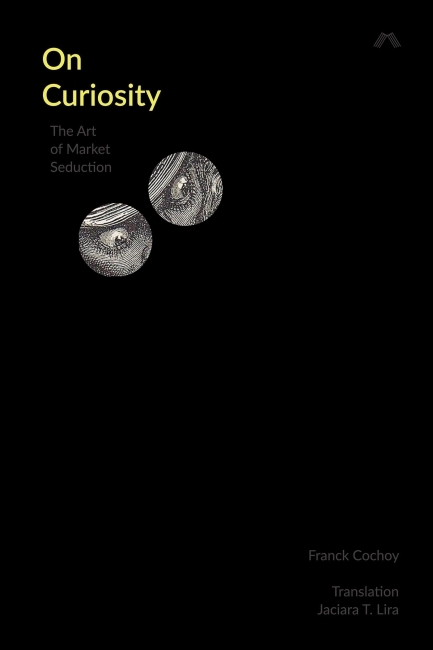
Author: Frank Cochoy
Manchester, UK: Mattering Press, 2016
https://doi.org/10.28938/9780995527706
What draws us towards a shop window display? What drives us to grab a special offer, to enter the privileged circle of premium newspaper subscribers, to peruse the pages of an enticing magazine? Without doubt, it is curiosity — that essential force of everyday action which invites us to break from our habits and to become transported beyond our very selves.
Curiosity (whether healthy or unhealthy) is one of the favourite tricks of market seduction. Capturing a public — attracting the attention of a reader, seducing a customer, meeting the expectations of a user, persuading a voter … — often requires the construction of a set of technical devices that can play upon people’s inner motivations.
Imagining Classrooms: Stories of children, teaching, and ethnography

Author: Vicki Macknight
Manchester, UK: Mattering Press, 2016
Modes of Knowing: Resources from the Baroque

Editor: John Law
Editor: Evelyn Ruppert
Manchester, UK: Mattering Press, 2016
https://doi.org/10.28938/9780993144981
How might we think differently? This book is an attempt to respond to this question. Its contributors are all interested in non-standard modes of knowing. They are all more or less uneasy with the restrictions or the agendas implied by academic modes of knowing, and they have chosen to do this by working with, through, or against one important Western alternative — that of the baroque.
Practising Comparison: Logics, Relations, Collaborations
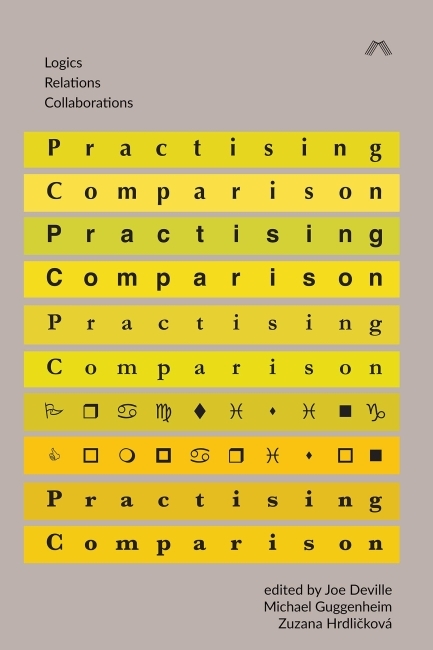
Editor: Michael Guggenheim
Editor: Joe Deville
Editor: Zuzana Hrdličková
Manchester, UK: Mattering Press, 2016
https://doi.org/10.28938/9780993144943
This book compares things, objects, concepts, and ideas. It is also about the practical acts of doing comparison. Comparison is not something that exists in the world, but a particular kind of activity.
Agents of various kinds compare by placing things next to one another, by using software programs and other tools, and by simply looking in certain ways. Comparing like this is an everyday practice. But in the social sciences, comparing often becomes more burdensome, more complex, and more questions are asked of it.
How, then, do social scientists compare? What role do funders, their tools, and databases play in social scientific comparisons? Which sorts of objects do they choose to compare and how do they decide which comparisons are meaningful? Doing comparison in the social sciences, it emerges, is a practice weighed down by a history in which comparison was seen as problematic. As it plays out in the present, this history encounters a range of other agents also involved in doing comparison who may challenge the comparisons of social scientists themselves.
